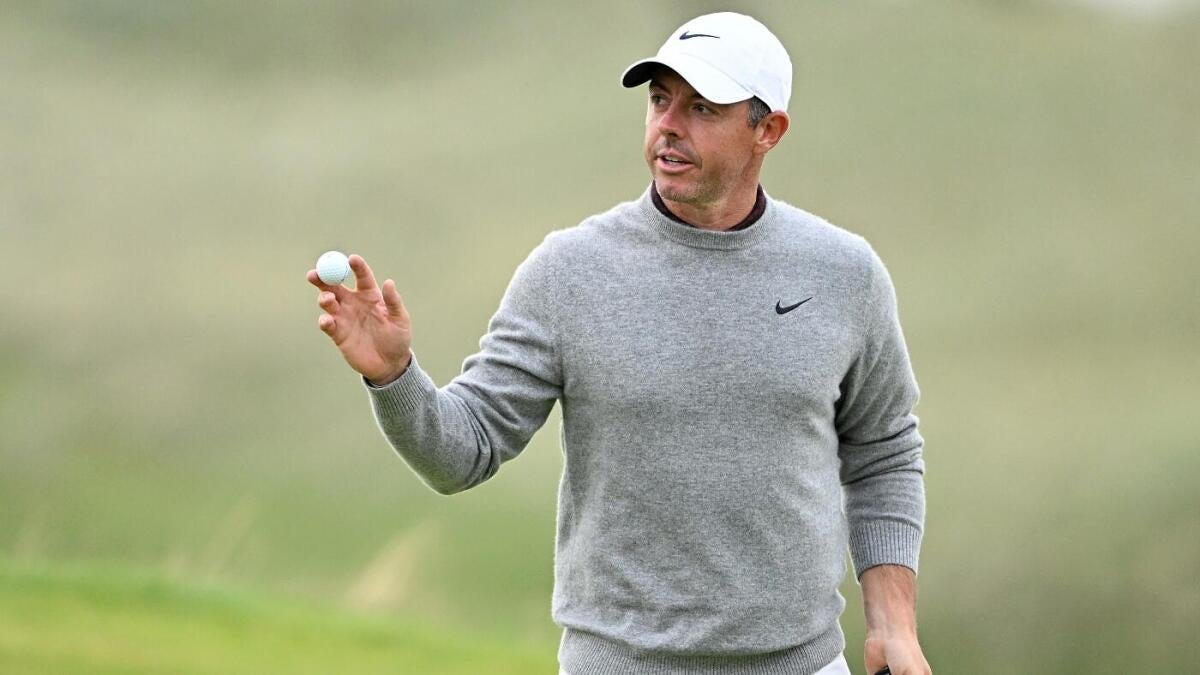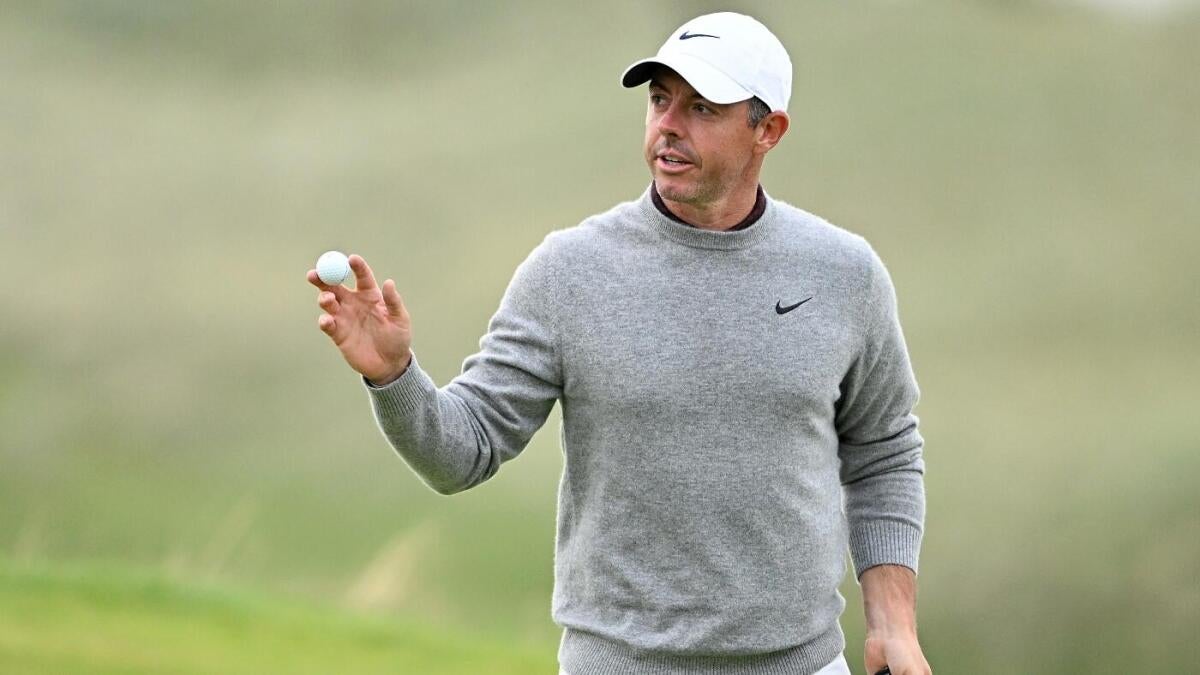Rory McIlroy’s Strategic Omission: A Masterclass in Golfing Strategy
The Art of Strategic Absence
Rory McIlroy’s decision to skip the 2025 FedEx St. Jude Championship is more than just a scheduling quirk—it’s a masterclass in strategic thinking. In a sport where every tournament counts, the Northern Irishman’s choice to sit out the opening event of the FedEx Cup Playoffs is a bold statement about prioritization and peak performance. This decision isn’t about avoiding competition; it’s about optimizing it. McIlroy is playing a long game, one where he carefully selects his battles to ensure he’s at his absolute best when it matters most.
The Science of Schedule Management
Professional golf is a grueling circuit, demanding both physical and mental stamina. The modern golfer’s schedule is a delicate balance between maintaining peak form and avoiding burnout. McIlroy’s decision to skip the St. Jude Championship is a testament to this reality. By strategically managing his schedule, he’s ensuring that he’s fresh and focused for the tournaments that align with his strengths and career goals.
This approach isn’t just about avoiding certain events; it’s about creating a schedule that maximizes his potential. McIlroy has publicly stated his intention to focus on major championships and other significant events. This isn’t a sign of disinterest in the FedEx Cup; rather, it’s a recognition that sustained success requires strategic planning. The FedEx Cup playoffs are a marathon, not a sprint, and McIlroy is positioning himself to run a smart race.
Course Preference and Performance History
Golfers often have courses that simply don’t suit their game, and TPC Southwind appears to be one of those for McIlroy. His past performances at this venue haven’t been stellar, and this could be a significant factor in his decision to bypass the event. By choosing not to play at a course where he hasn’t historically excelled, McIlroy is making a pragmatic decision. It’s a recognition that not every tournament is a good fit for every player, and that sometimes, the best strategy is to focus on events where the odds are more in your favor.
The FedEx Cup: A Long-Term Perspective
McIlroy’s decision also reflects a long-term perspective on the FedEx Cup. He’s not just thinking about the immediate points he could earn at the St. Jude Championship; he’s considering the bigger picture. The FedEx Cup points system is weighted, with more points awarded in the later stages of the playoffs. By prioritizing rest and preparation, McIlroy could be aiming for a more impactful showing at the BMW Championship and the Tour Championship, where the points are magnified.
This approach is a clear risk-reward calculation. While he forfeits the opportunity to gain points at the St. Jude Championship, he aims to maximize his chances of performing exceptionally well in the remaining playoff events. It’s a strategy that reflects the modern golfer’s focus on maximizing their potential at pivotal moments.
Personal Considerations and Well-Being
It’s also important to acknowledge the role of personal factors in a golfer’s decision-making process. Travel, family commitments, and mental well-being can all influence a player’s schedule. McIlroy might have personal reasons for needing a break at this particular time, and prioritizing his overall well-being is essential for long-term success and happiness.
In today’s high-pressure world of professional sports, mental health is increasingly recognized as a critical component of performance. By taking a strategic break, McIlroy is demonstrating a commitment to his well-being, which can only enhance his performance in the long run.
The Impact on the FedEx Cup Campaign
While skipping the FedEx St. Jude Championship carries some risk, the potential impact on McIlroy’s FedEx Cup campaign might be less severe than one might initially think. McIlroy’s high ranking in the FedEx Cup standings provides him with a cushion. Even without earning points at the St. Jude Championship, he’s likely to remain within the top 70 who qualify for the BMW Championship. His previous successes and consistent performances throughout the season have earned him a buffer that allows for this strategic absence.
Moreover, the FedEx Cup points system is designed to reward strong performances in the later stages of the playoffs. A strong performance in the BMW Championship and the Tour Championship can significantly boost a player’s standing, potentially offsetting the lack of points earned at the St. Jude Championship. McIlroy could be banking on this system to propel him to the top.
The Evolving Landscape of Professional Golf
McIlroy’s decision also highlights broader trends in the world of professional golf. Golfers are increasingly taking control of their schedules, prioritizing their well-being and strategic goals over simply playing every tournament. This shift reflects a growing awareness of the importance of mental and physical health in achieving sustained success. Players like McIlroy are demonstrating that it’s possible to compete at the highest level while also maintaining a balanced life.
The modern golfer has access to vast amounts of data and analytics that help them make informed decisions about their game and their schedules. McIlroy and his team likely analyzed his past performance at TPC Southwind, his current physical and mental state, and the overall FedEx Cup points system to arrive at this strategic decision. This data-driven approach is becoming increasingly common in professional sports, and it’s a testament to the evolving nature of the game.
The Rise of Superstars
Golf is increasingly driven by a handful of superstar players who attract significant attention and generate substantial revenue. These players have the leverage to dictate their schedules and prioritize events that align with their personal and professional goals. McIlroy’s decision reflects the power and influence that these superstars wield in the modern game.
By choosing to skip the St. Jude Championship, McIlroy is sending a clear message about his priorities. He’s not just a participant in the game; he’s a shaper of it. His decision is a testament to his status as one of the sport’s elite, and it underscores the evolving dynamics of professional golf.
A Bold Move with Potential Rewards
Rory McIlroy’s decision to skip the 2025 FedEx St. Jude Championship is a bold move that reflects his strategic approach to the game, his focus on major championships, and his understanding of the FedEx Cup points system. While the decision has some risks, it also has the potential to pay off handsomely if he performs well in the BMW Championship and the Tour Championship.
This move is a testament to McIlroy’s evolving strategy, emphasizing quality over quantity. It’s a calculated gamble, a strategic parry in the high-stakes game of professional golf. Only time will tell if this ace up his sleeve will lead him to another FedEx Cup victory, but it undeniably underscores his commitment to peak performance when it matters most.
The Future of Golf Strategy
McIlroy’s decision is likely to influence other players in the sport. As golf continues to evolve, strategic scheduling will become an increasingly important aspect of the game. Players will need to balance the desire to compete in every event with the need to prioritize their well-being and peak performance.
The modern golfer is not just an athlete; they are a strategist, a data analyst, and a decision-maker. McIlroy’s move is a testament to this reality, and it sets a new standard for the sport. As the game continues to evolve, we can expect to see more players adopting a similar approach, prioritizing their strengths and optimizing their schedules for maximum impact.
Conclusion: A New Era of Golfing Strategy
Rory McIlroy’s decision to skip the 2025 FedEx St. Jude Championship is more than just a scheduling decision; it’s a statement about the future of golf. It’s a recognition that sustained success requires strategic planning, data-driven decision-making, and a commitment to well-being. McIlroy’s move is a testament to his status as one of the sport’s elite, and it underscores the evolving dynamics of professional golf.
As the game continues to evolve, we can expect to see more players adopting a similar approach, prioritizing their strengths and optimizing their schedules for maximum impact. McIlroy’s decision is a bold move, but it’s one that reflects the modern golfer’s focus on peak performance and strategic thinking. It’s a new era of golfing strategy, and Rory McIlroy is leading the charge.












